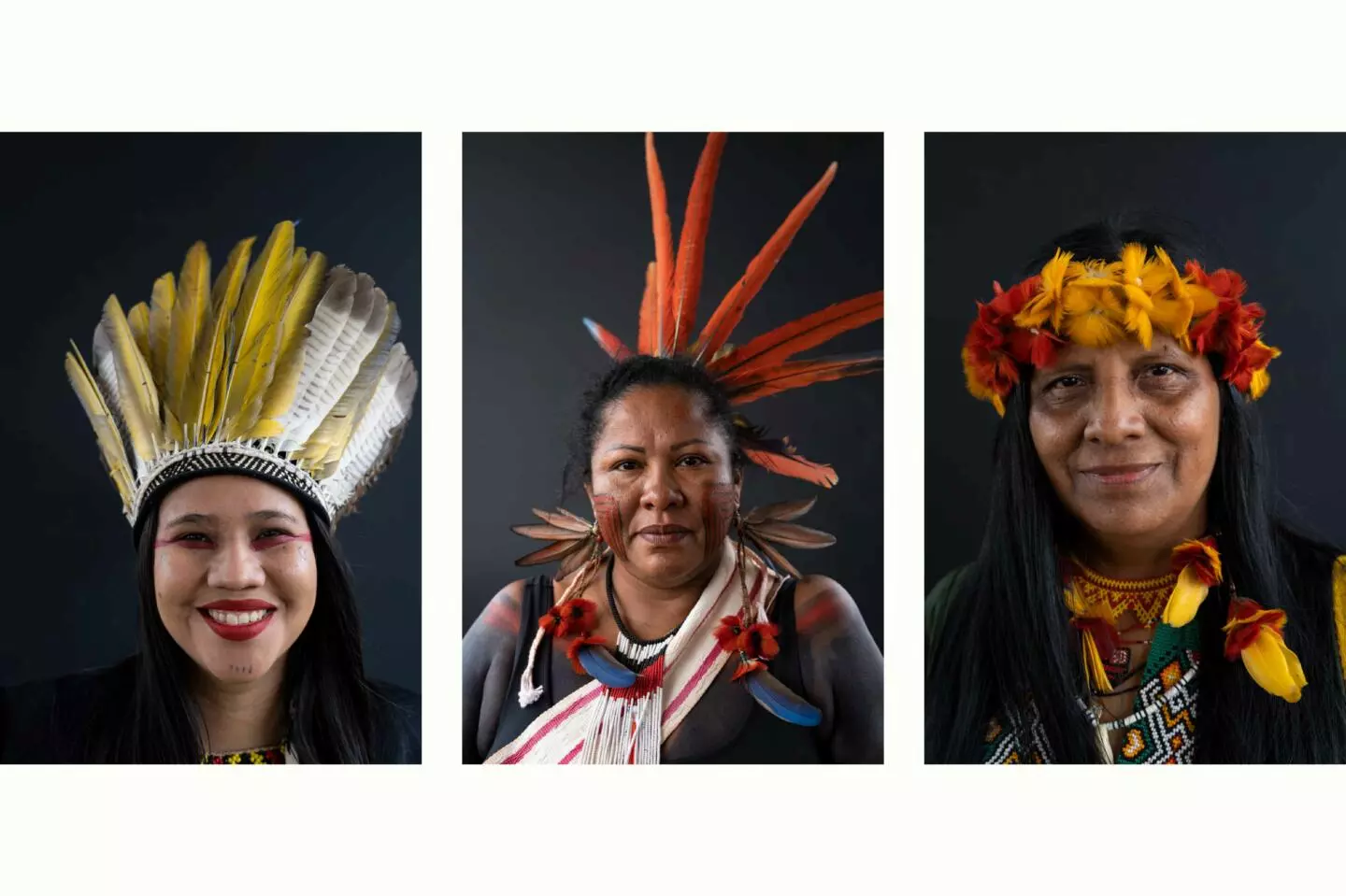Territory, life, body. These words are interconnected when indigenous women discuss their rights. They call themselves land-women, seed-women, indigenous warrior women of the ancestors. Defenders of life, of the environment, and of their territories, they are becoming increasingly organized in demanding their rights through public policies that protect their bodies from countless forms of violence. Today, all the key positions held by indigenous people in the federal government are in the hands of women. During the 19th edition of the Free Land Camp (ATL), that was held between April 24 and April 28, in the federal capital Brasília, indigenous women organized plenary sessions to discuss the role and demands of women in the movement.
Many leaders have begun discussions in relation to indigenous female candidates for the 2024 and 2026 electoral races. The Minister of Indigenous Peoples, Sonia Guajajara pointed out that the establishment of the National Alliance of Indigenous Warrior Women of the Ancestors (ANMIGA), in 2021, played a crucial role in bringing these women together and “demarcating” their struggle. In the midst of the covid-19 pandemic, it was women who managed to halt a judgment in the Federal Supreme Court that would have put a historically unfair time limit on demarcation claims. Indigenous women remained camped in Brasilia for seven days in protest against this in 2021. The time limit attempts to restrict territorial entitlements to indigenous people who occupied their territories at the time of the 1988 Constitution. The Supreme Court is due to resume discussion of the time limit trick, possibly in June of this year.
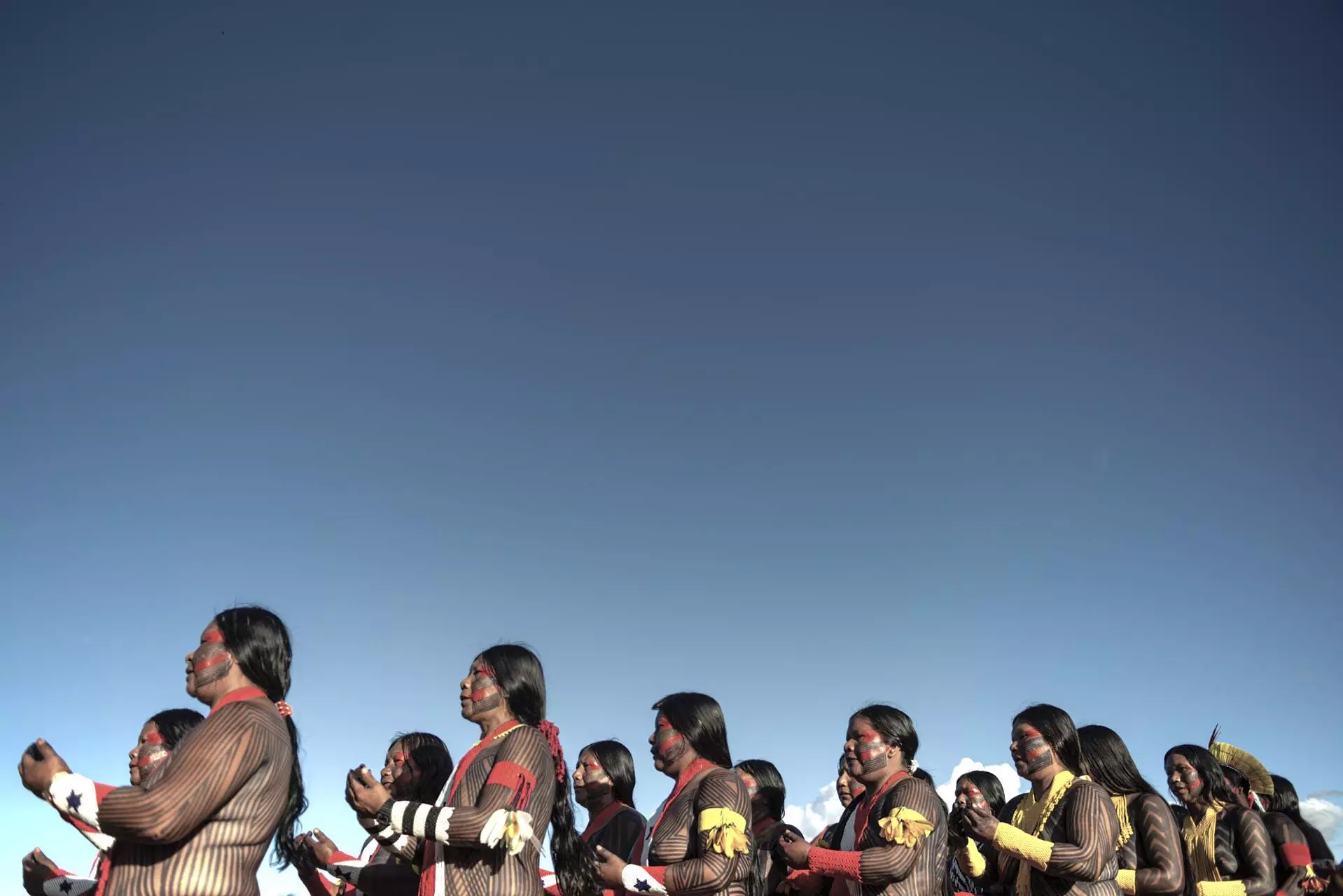
Kayapó indigenous women in a ritual on the afternoon of the second day of the Free Land Camp 2023. Photo: Matheus Alves/Sumaúma
“We have not taken a single step backwards, and we will not do so. This is a historic moment, when we, indigenous women, by means of the so-called Cocar (Headdress) Caucus, are now inside the Executive branch, inside Congress, and are also fighting to occupy the Judiciary. This is what it means to turn politics into an indigenous village. We need to break with the machismo that is so widespread in our country. We need to break with the violence that leads to the raping and killing our girls.”
Sonia Guajajara, Minister of Indigenous Peoples, during the women’s plenary session at the Free Land Camp (ATL) 2023
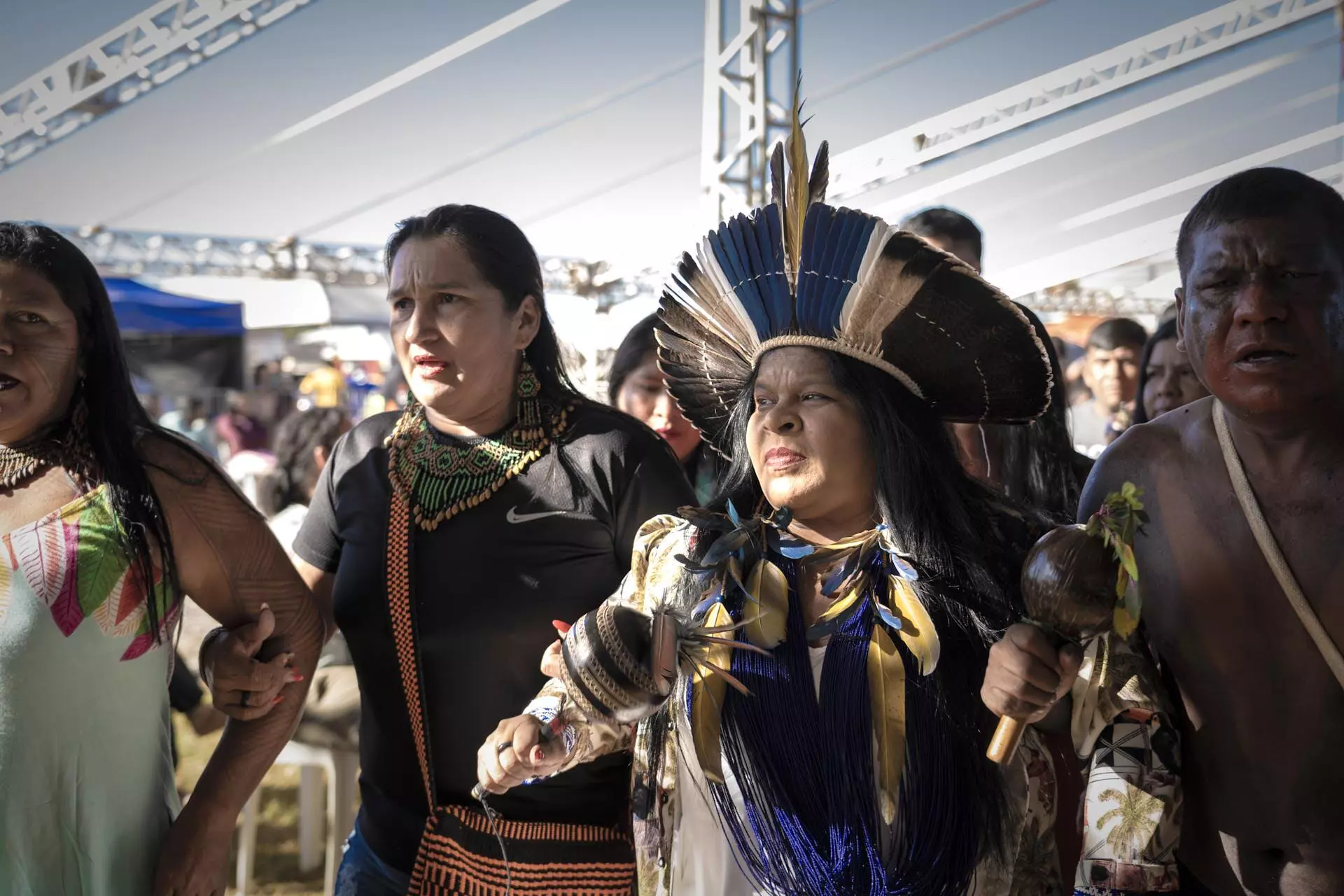
Sonia Guajajara, Minister of Indigenous Peoples of Brazil, during the plenary session: ‘Parentíssimos e Parentíssimas (Right Honorable relatives): Indigenous Authorities in the Movement and in the Government’ which was held on the second day at the 19th edition of the Free Land Camp in Brasilia. Photo: Fernando Martinho/Sumaúma
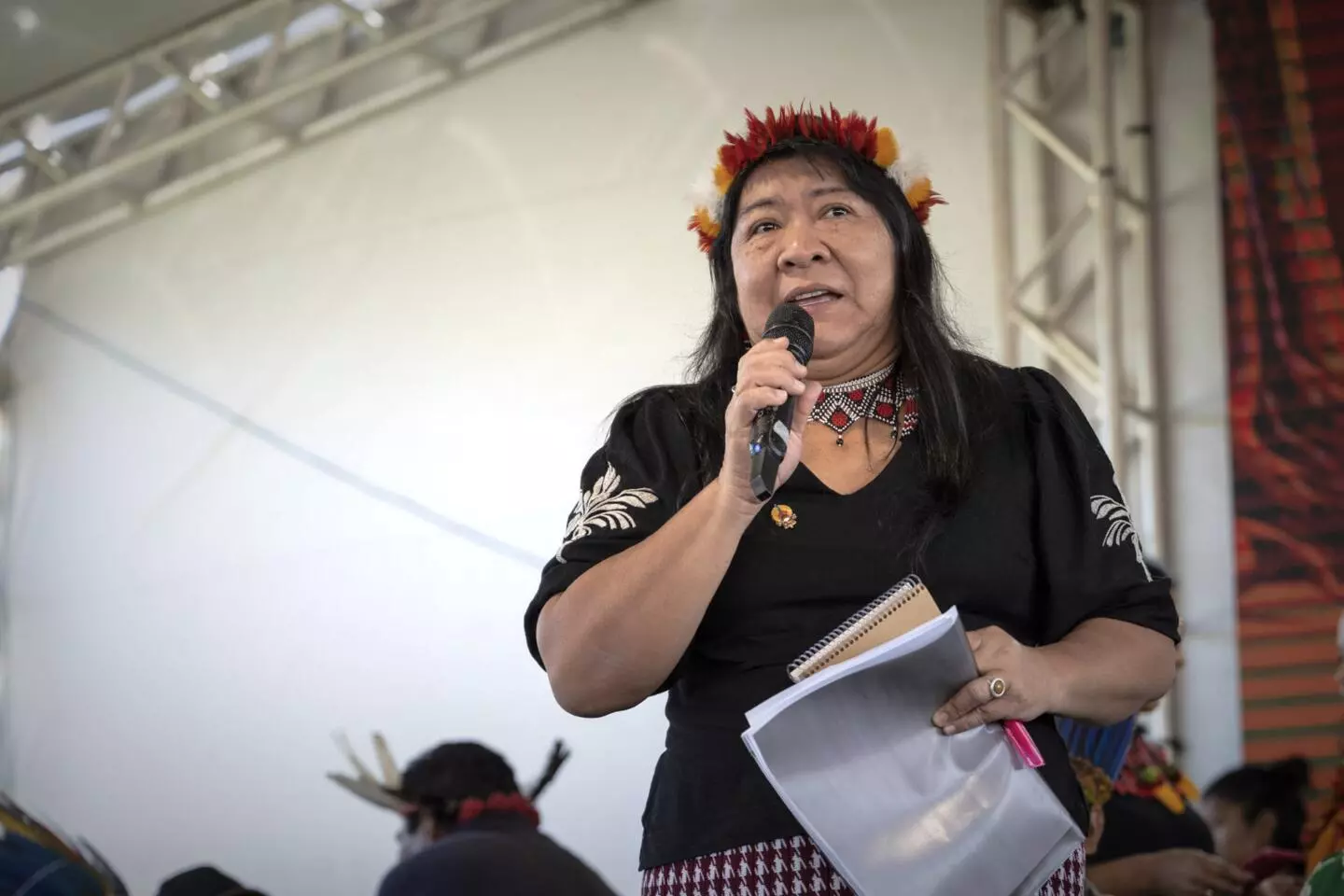
Joenia Wapichana, president of the National Foundation of Indigenous Peoples (Funai), during the plenary session: ‘Parentíssimos e Parentíssimas (Right Honorable relatives): Indigenous Authorities in the Movement and in the Government’ on the second day at the 19th edition of the Free Land Camp (ATL) in Brasilia. The theme for this year’s ATL is ‘The indigenous future starts today. Without demarcation there is no democracy!’. Photos: Fernando Martinho / Sumaúma. @fernandomartinhophoto
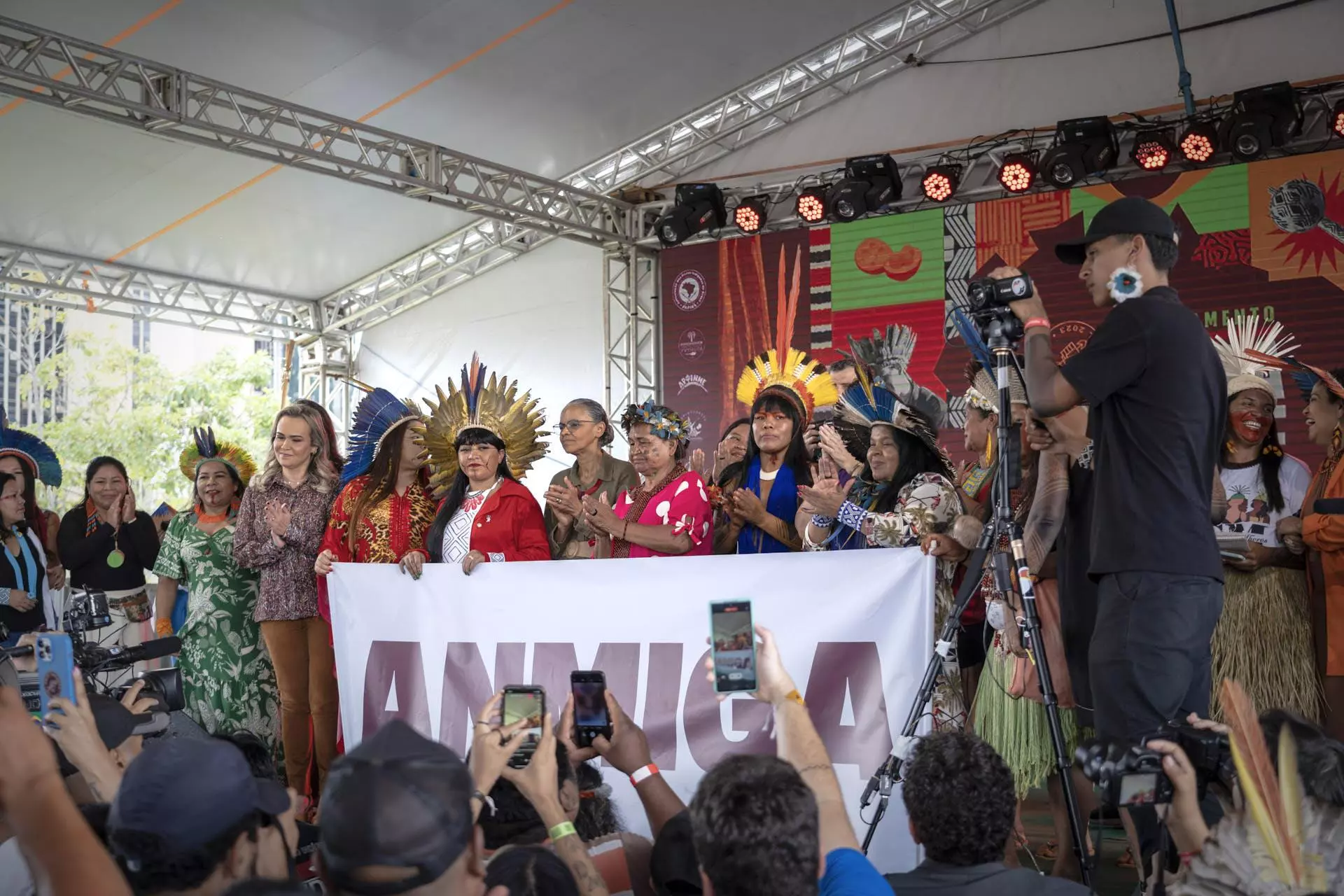
The Ministers Sonia Guajajara (Indigenous Peoples), Marina Silva (Environment and Climate Change), Daniela Carneiro (Tourism), the Federal Deputy Célia Xakriabá, the Indigenous representative Watatakalu Yawalapiti (yellow headdress) and other leaders at the “Indigenous Women” plenary session, held at the 19th edition of the Free Land Camp (ATL), in Brasilia. They are holding the ANMIGA (National Articulation of Indigenous Warrior Women of the Ancestors) banner. Photo: Fernando Martinho/Sumaúma
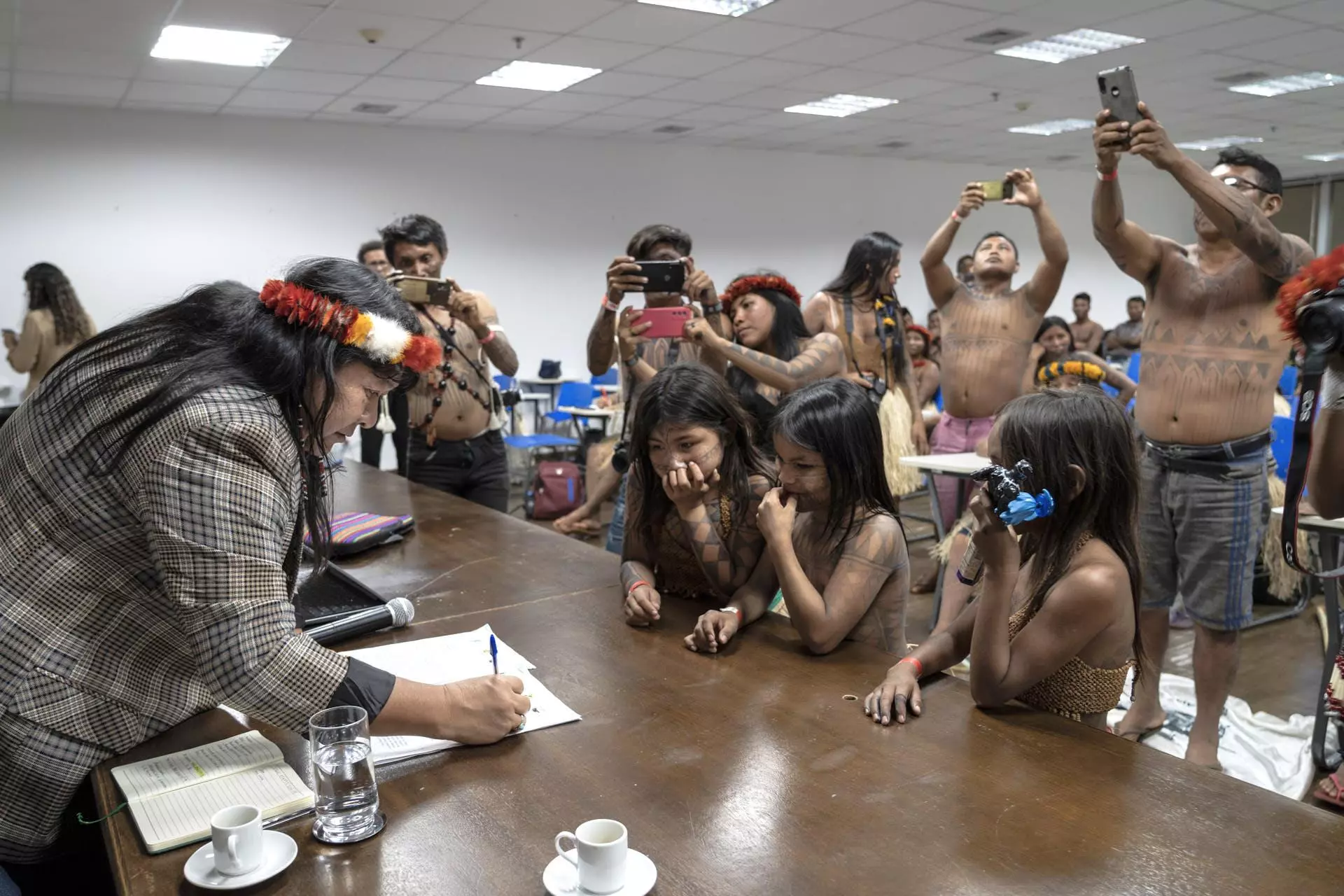
Joenia Wapichana, president of the National Foundation of Indigenous Peoples (Funai), signs the decree of the Sawre Muybu territory, during a meeting with a delegation of Munduruku indigenous people, at the 19th edition of the Free Land Camp in Brasilia. Photo: Fernando Martinho/Sumaúma
“We have the potential and capacity to say how we want to walk, paving the way for other women. I was the first indigenous woman lawyer and the first indigenous woman to become a federal deputy. Indigenous women are making history in Brazil.”
Joenia Wapichana, president of the National Foundation of Indigenous Peoples (Funai), former federal deputy
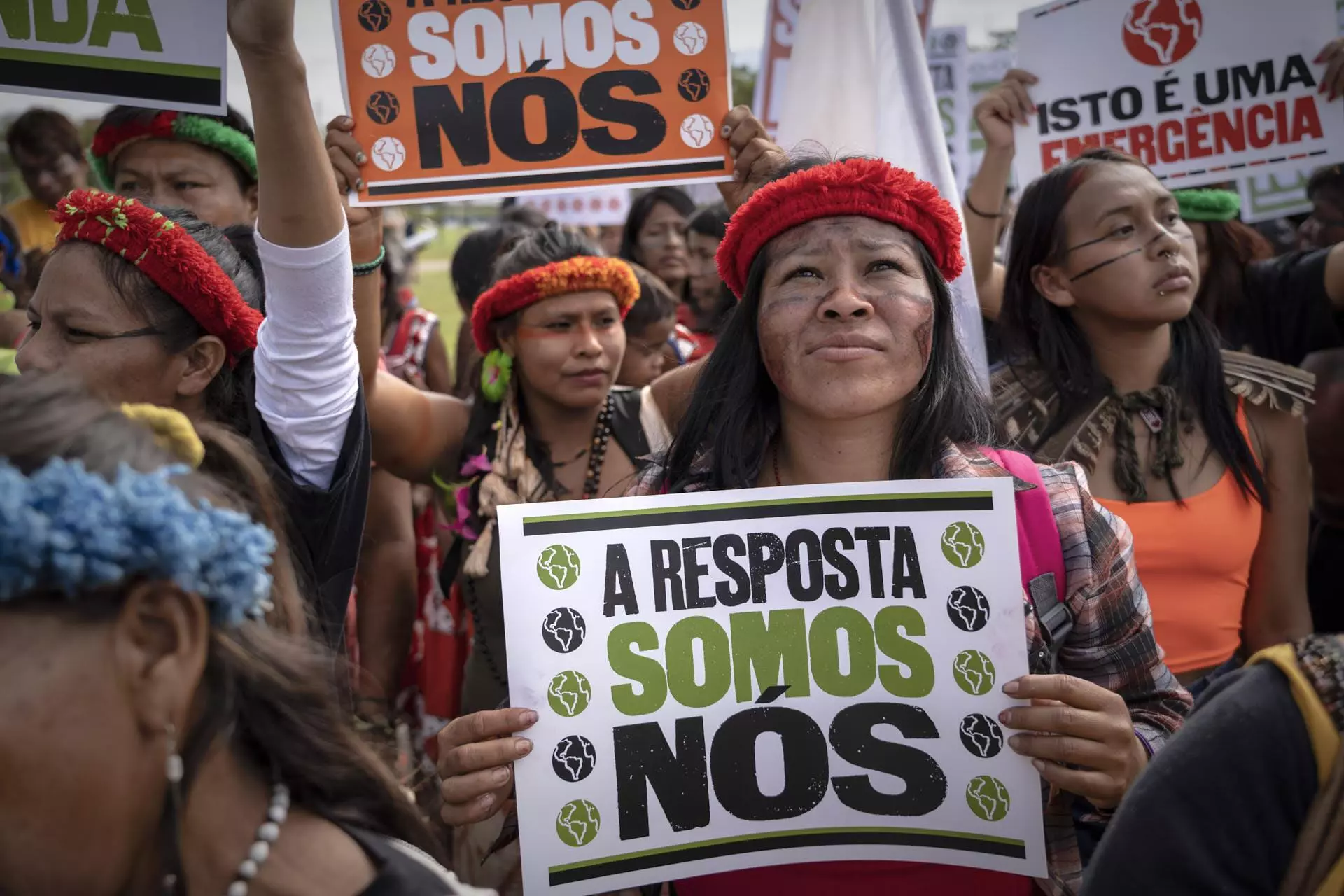
Indigenous women at the first march of the 19th edition of the Free Land Camp in Brasilia. The slogan of 2023 edition of the Free Land Camp (ATL) was ‘The indigenous future starts today. Without demarcation there is no democracy!’. Photo: Fernando Martinho/Sumaúma
“The first person that the Bolsonaro government attacked was a woman. And people ask: who was this woman? It was the land. If the land suffers injustice, we women also suffer.”
Célia Xakriabá (of the Socialism and Liberty Party for the State of Minas Gerais), federal deputy, president of the House of Representatives’ Commission on the Amazon Region and Original Peoples
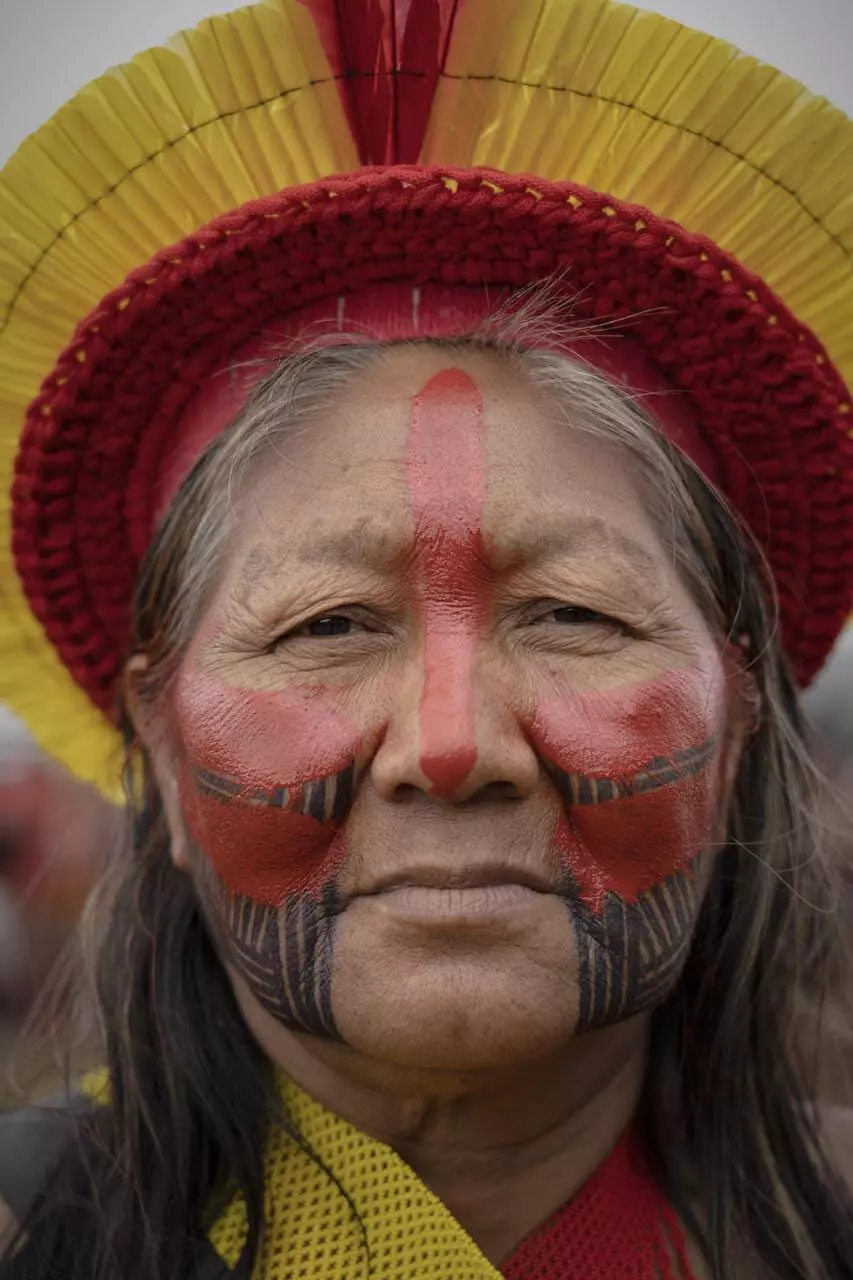
Tuire Kayapó, at the opening of the 19th edition of the Free Land Camp (ATL) in Brasília. Photo: Fernando Martinho/Sumaúma
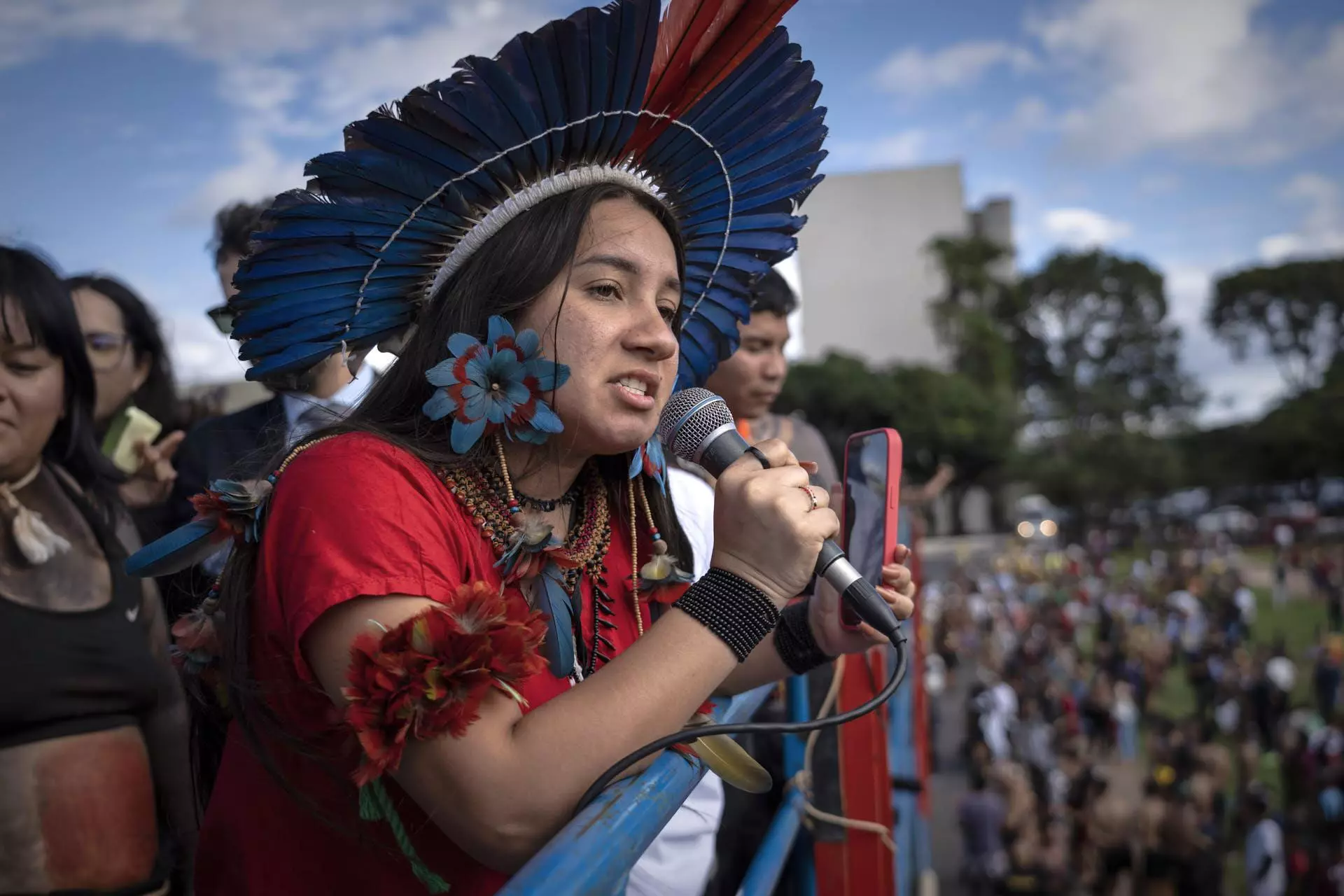
Activist, communicator and influencer Samela Sateré Mawé, a reference for indigenous youth, speaks from the top of a sound truck at the end of the first protest march during the 19th edition of the Free Land Camp (ATL) in Brasilia. Photo: Fernando Martinho/Sumaúma
“Indigenous communication is a tool of struggle and resistance and an important means for demystifying, deconstructing, decolonizing and reporting the indigenous and environmental agenda.”
Samela Sateré Mawé, from the communications department of the Articulation of Indigenous Peoples (Apib), which organized the 2023 edition of the Free Land Camp (ATL), and Sumaúma collaborator.
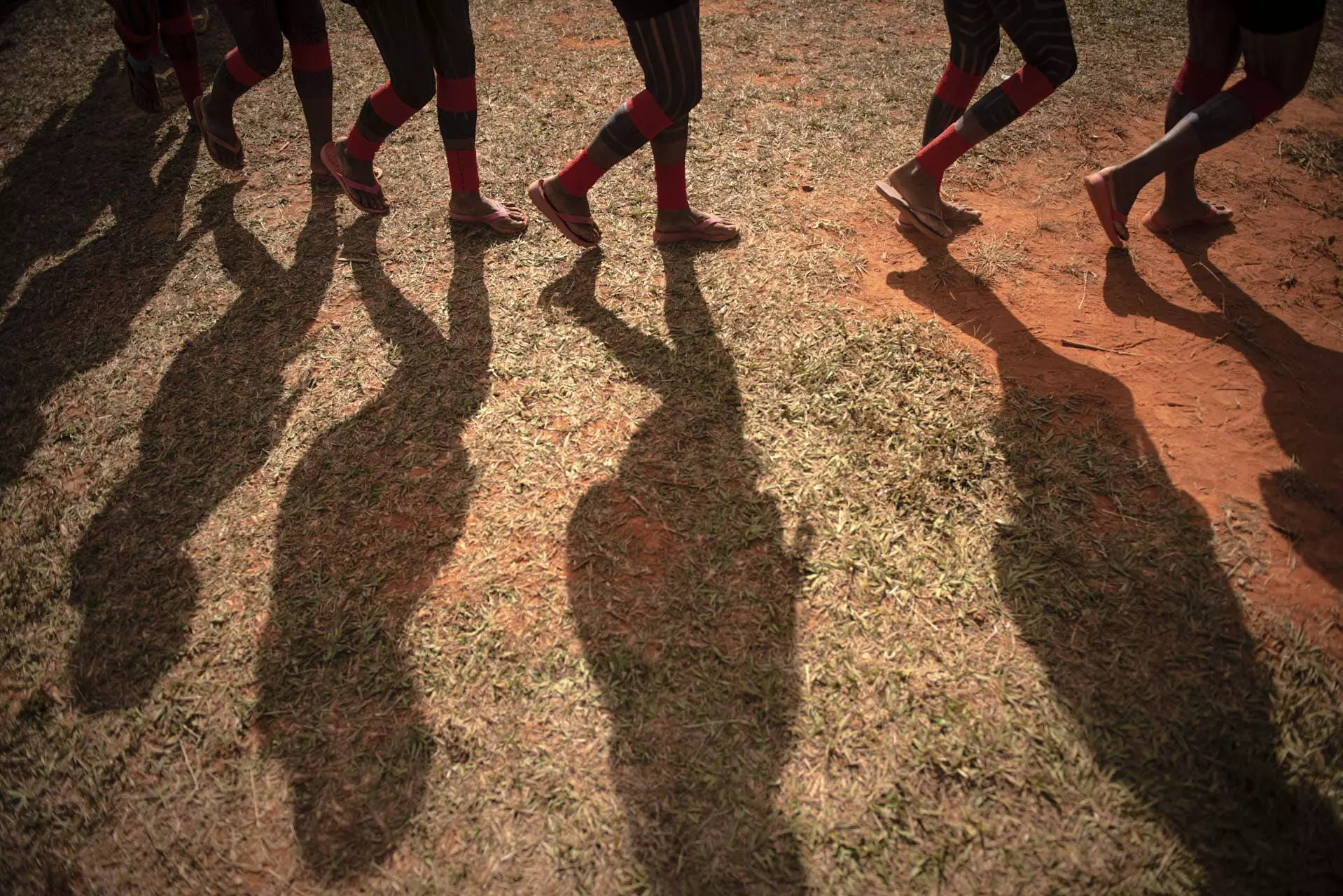
Kayapó indigenous women during a ritual on the second day of the 2023 Free Land Camp (ATL). Photo: Matheus Alves/Sumaúma
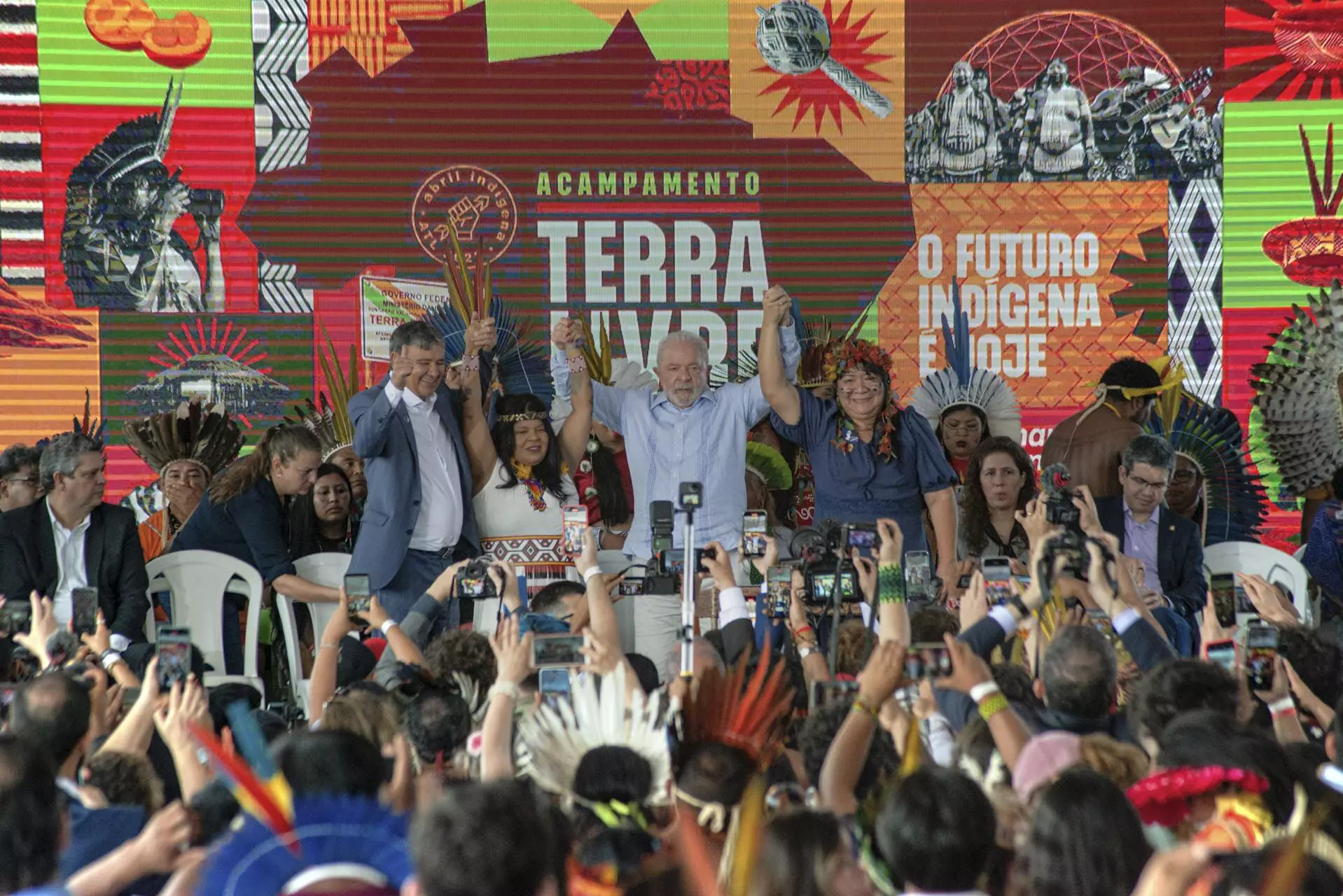
President Lula next to Minister Sonia Guajajara (Indigenous Peoples), Minister Wellington Dias (Social Development) and Joenia Wapichana, the president of the National Foundation of Indigenous Peoples (Funai), after signing the ratification of six indigenous lands at the closing of the 2023 Free Land Camp. Photo: Matheus Alves/Sumaúma
“I’ve been coming to the Free Land Camp for 13 years. If you had told me 13 years ago that we would have a minister, a federal deputy and the presidency of the National Foundation of Indigenous Peoples along with indigenous state secretaries, many of us would not have believed it. But all of this is taking place in front of our very eyes.”
Narubia Werreira, Secretary for the Original and Traditional Peoples of the State of Tocantins
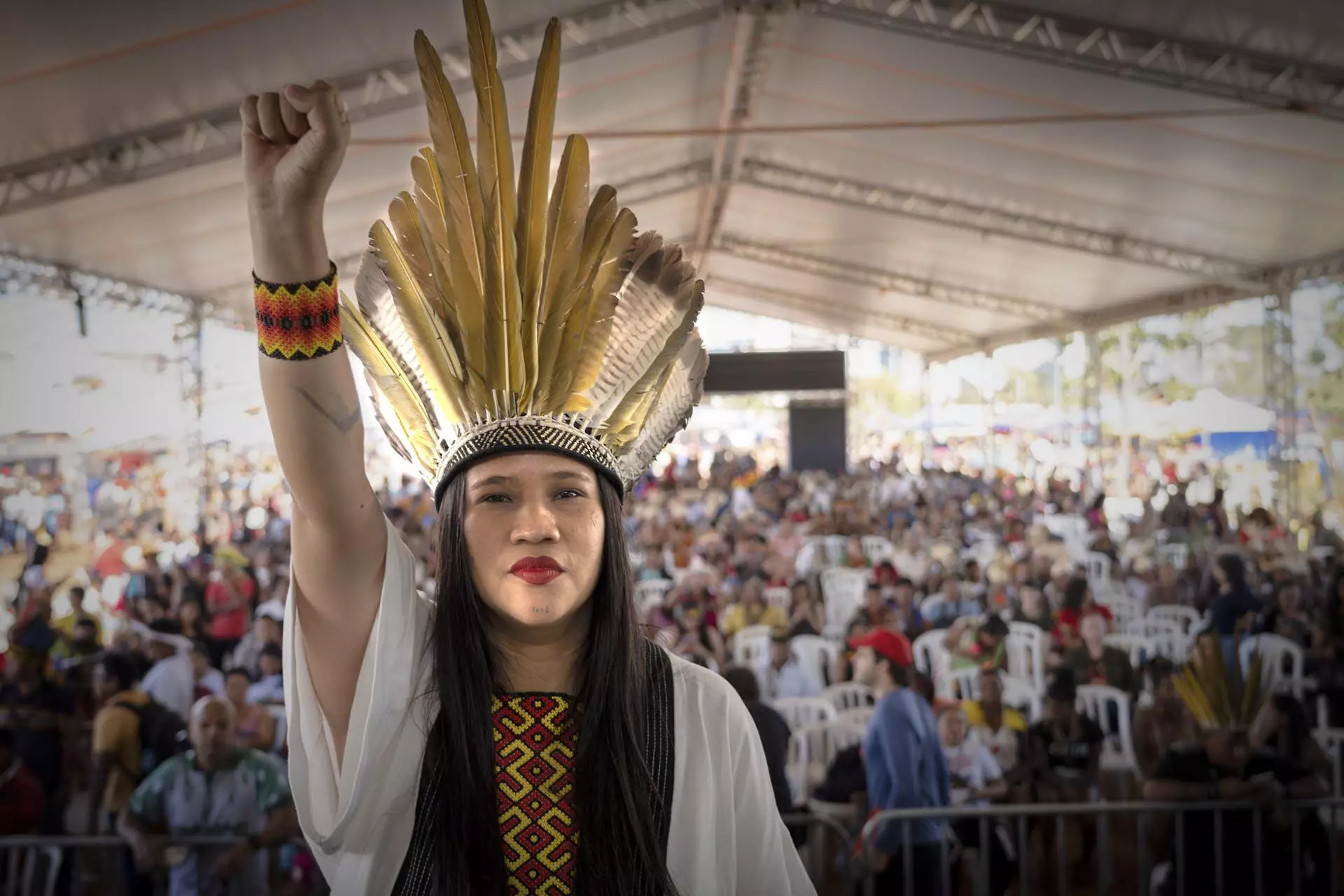
Narubia Werreira, Secretary for the Original and Traditional Peoples of the State of Tocantins, who spoke at the plenary session organized to discuss the participation of indigenous people in government structures, on the second day of the 19th edition of the Free Land Camp (ATL) in Brasilia. Photo: Fernando Martinho/Sumaúma
Spell check (Portuguese): Elvira Gago
Translation into Spanish: Meritxell Almarza
English translation: Mark Murray
Photography editing: Marcelo Aguilar, Mariana Greif and Pablo Albarenga




